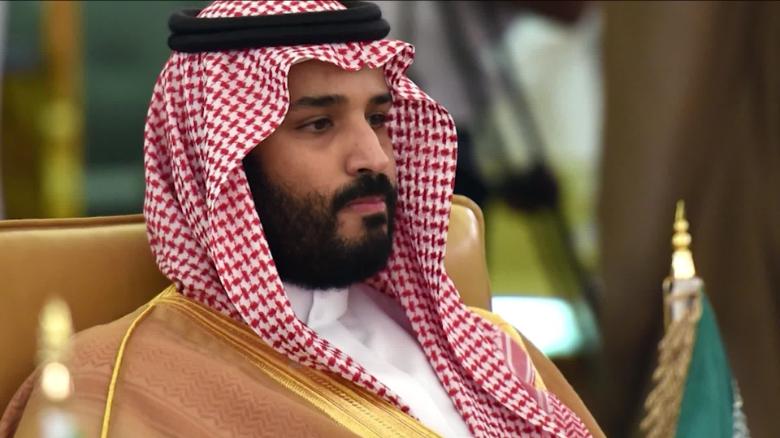
Riyadh, Saudi Arabia – There are two versions of the story in the Looking Glass world surrounding the disappearance of Jamal Khashoggi. No overlap. No agreed facts but different interpretations, no room for reasonable doubt.
Using selective leaks spiced with speculation and technobabble, Turkey has presented a scenario in which the Washington Post columnist was lured into the Saudi consulate in Istanbul, murdered and perhaps even dismembered.
Turkish officials have shown video and audio evidence of this attack to Western intelligence agencies and their descriptions have been passed on by sources to CNN, among others.
Turkish media have suggested this evidence was obtained from Khashoggi’s Apple Watch — which is technically unlikely. This may be a smokescreen if, as some have speculated, the consulate was bugged by Turkish intelligence.
There have been lurid references to bone saws, dismemberment and nighttime burial on a far-flung coastline.
Inconsistencies inevitably leave room for reasonable doubt.
In diplomacy, doubt is good. It leaves room for backtracking and apology. An opportunity to say sorry, blush and move on.
The Saudi version leaves no room for error. It is being echoed from Riyadh to Abu Dhabi.
Khashoggi wasn’t murdered, that version goes. Worse still, the whole saga has been made up by Saudi Arabia’s rivals to stain the reputation of the kingdom.
A statement released through the state-run Saudi Press Agency quoted none other than Prince Abdulaziz bin Saud bin Naif bin Abdulaziz, the interior minister.
In the statement, he “affirmed the Kingdom of Saudi Arabia’s condemnation and denunciation of the false accusations circulated in some media on the Saudi government and people against the background of the disappearance of the Saudi citizen Jamal Khashoggi.” Reports circulating “about orders to kill him are lies and baseless allegations against the government of the Kingdom,” the statement added.
United Arab Emirates Minister of State for Foreign Affairs Anwar Gargash, usually a man of considerable tact, had already joined the fray, tweeting grave threats.
“There is a need to show the reality of the human dimension of the situation as the repercussions of the political targeting of Saudi Arabia will be dire for those who fuel it.”
Those who “fuel it” are, according to numerous columnists and commentators in Saudi-owned or -backed news organizations, the Muslim Brotherhood and Qatar, plus Turkey’s government.
These are the groups, they say, behind what Prince Abdulaziz calls the “lies and baseless allegations.”
“The Muslim Brotherhood, which was also drum-beating falsehoods related to Khashoggi’s disappearance, was exposed when the Saudi journalist’s family reaffirmed their confidence in the measures being taken by the Saudi government,” trumpeted commentator Nader Al-Enizi on the Saudi-owned news site Al-Arabiya.
A lawyer for the Khashoggi family had earlier been quoted by Al-Arabiya as saying they had complete faith in the Saudi government’s investigation of Khashoggi’s disappearance.
Qatar is under a blockade by Saudi Arabia and the UAE for its alleged support of the Muslim Brotherhood, and for funding the Al Jazeera channels which the other Gulf states claim are mouthpieces for the Brotherhood.
Turkey supports Qatar and has ridiculed Saudi Arabia’s claims to be a force of moderate Islam.
And so there is a standoff over the disappearance of Khashoggi — not over details of the story, but over the entire narrative.
That, above all, is potentially dangerous for Saudi Arabia’s Crown Prince Mohammed bin Salman. He’s been the major power in the kingdom for more than two years.
If evidence is presented publicly that suggests Khashoggi met with a violent end, or was abducted by Saudi agents, the kingdom has no version of the story that could accommodate this.
Bin Salman is the author of an economic and social reform program that has seen women being allowed to drive and opening up Saudi Arabia to cinemas and other entertainment. He also ordered the incarceration of about 200 people, including 17 princes at the Ritz-Carlton in Riyadh, during an “anti-corruption” drive for months.
They were released upon payment of over $100 billion in “settlements” earlier this year — none were subjected to a formal judicial process.
Bin Salman has been seen as both visionary and volatile. And he no doubt has rivals within the country who believe they could do a better job. They might say, if he’s stigmatized by what has happened to Khashoggi, that he should have taken the advice given to Alice by the Duchess in Wonderland: “And the moral of that is — ‘Be what you would seem to be.'”
As reported by CNN
